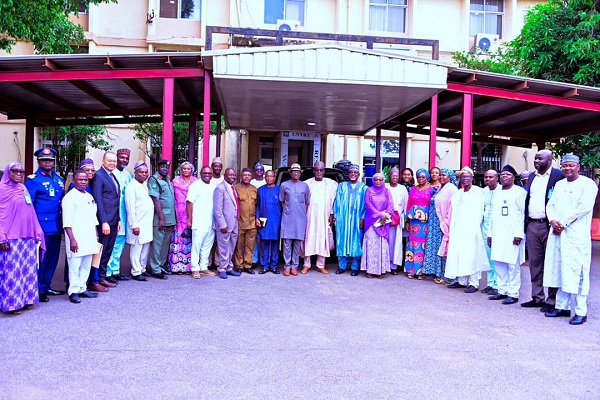
In a bid to prevent future flood disasters in the country, the Presidential Committee for the Development of a Comprehensive Plan of Action has recommended the establishment of a National Flood Management Council (NFMC) in Nigeria.
The committee, led by the Minister of Water Resources, Alhaji Suleiman Adamu presented its report at a media briefing held in Abuja, emphasising the need for a coordinated approach to flood management.
Highlighting the significance of the proposed council, Adamu stated that it would serve as a central body responsible for coordinating flood management activities nationwide. He further suggested that the council be chaired by the vice-president, ensuring the highest level of attention and oversight. Its primary role would be to advise the president on all matters related to flood management, including the declaration of a state of emergency based on flood categorisation.
The minister highlighted the absence of a comprehensive mechanism for flood mitigation, adaptation, response and recovery in the country. Currently, governments at various levels tend to focus on post-disaster projects rather than investing adequately in flood management infrastructure. Adamu stressed that implementing flood management schemes required substantial financial investment, which has been a major constraint thus far.
To address this issue, the committee recommended the establishment of a sustainable funding mechanism called the Flood Management Fund, which would ensure coordinated and well-managed relief efforts. This fund would not be temporary in nature but rather provide ongoing support for flood-related initiatives. Additionally, the minister underscored the importance of long-term planning for flood mitigation and management, suggesting that annual budgets of the federal, state and local governments should allocate funds for these purposes.
In terms of funding sources, the committee identified options such as special intervention funds, ecological funds, the Natural Resources Development Fund and the Carbon Tax. Adamu emphasised the need to review existing legislation and enforce regulations, guidelines and codes governing construction activities in flood-prone areas. By doing so, the government aims to mitigate the risks associated with construction along flood plains.
The urgency of implementing comprehensive flood prevention measures was evident in the aftermath of the 2022 flood disaster, which prompted President Muhammadu Buhari to task the Minister of Water Resources with finding effective solutions within 90 days. Consequently, the Presidential Committee for the Development of a Comprehensive Plan of Action was established in November 2022.
The devastating impact of floods was highlighted by the National Emergency Management Agency (NEMA), reporting that the 2012 floods resulted in the loss of 363 lives, 5,851 injuries and affected over 3.8 million people, displacing them from their homes. The flood disaster in 2022 led to over 1.4 million people being displaced, with 665 fatalities and thousands injured. The economic damage caused by floods in 2012 was estimated at $7.3 billion, while the 2022 floods caused approximately $6.68 billion in damage, according to the World Bank.
The establishment of the National Flood Management Council, along with the proposed Flood Management Fund, aims to address these alarming statistics by adopting a proactive approach to flood management and prevention. It is hoped that these measures will contribute to reducing the occurrence and impact of future flood disasters in Nigeria.

